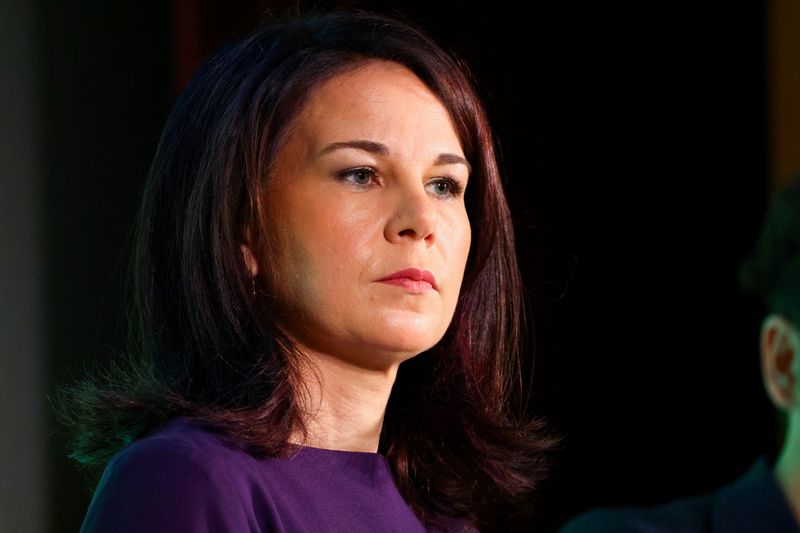BERLIN/PARIS (Reuters) -The foreign ministers of Germany and France will meet Syria’s de facto new leader Ahmed al-Sharaa during a trip to the country on Friday on behalf of the European Union, the German and French foreign ministries said.
The ministers, who arrived separately in Damascus on Friday morning, will also meet representatives of Syrian civil society and visit Syria’s most notorious prison, the vast Sednaya complex, according to the foreign ministries.
“My trip today – together with my French counterpart and on behalf of the EU – is a clear signal to the Syrians: A new political beginning between Europe and Syria, between Germany and Syria, is possible,” German Foreign Minister Annalena Baerbock said, according to a ministry statement issued before she left for Damascus.
Baerbock and French Foreign Minister Jean-Noel Barrot are the first ministers from the EU to visit Syria since rebels seized control of Damascus on Dec. 8 and forced President Bashar al-Assad to flee after more than 13 years of civil war and ending his family’s decades-long rule.
Barrot expressed his hope “for a sovereign, stable and peaceful Syria” after arriving in Damascus, where he also visited the French embassy, which has been closed since 2012.
According to French diplomatic sources, Barrot met with the Syrian staff who looked after the facilities and reaffirmed the need to work towards re-establishing diplomatic representation in line with political and security conditions.
Since ousting Assad, Islamist rebels led by Sharaa’s Hayat Tahrir al-Sham (HTS) have sought to reassure Arab countries and the international community that they will govern on behalf of all Syrians and not export Islamist revolution.
Western governments have begun to gradually open channels with Sharaa and HTS, a Sunni Muslim group previously affiliated with Al Qaeda and Islamic State, and are starting to debate whether to remove the group’s terrorist designation.
A host of questions remain about the future of a multi-ethnic country where foreign states including Turkey and Russia have strong and potentially competing interests.
Baerbock said she was travelling to Syria with an “outstretched hand” as well as “clear expectations” of the new rulers, who she said would be judged by their actions.
“We know where the HTS comes from ideologically, what it has done in the past,” said Baerbock.
“But we also hear and see the desire for moderation and for understanding with other important actors,” she added, citing talks with U.S.-allied Kurdish Syrian Democratic Forces (SDF).
Baerbock added that Germany and its international partners were committed to ensuring Syrian internal matters were not disrupted by outside influences, and called on Russia to leave its military bases in Syria.
The goal now is for Syria to once again become a respected member of the international community, she added.




